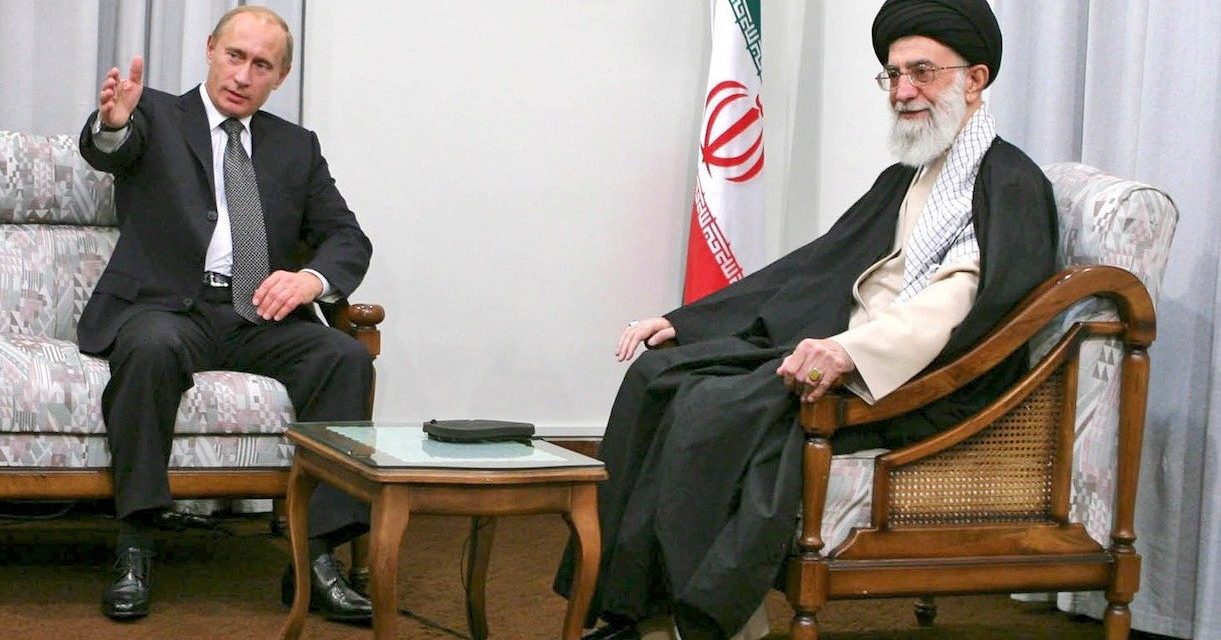PHOTO: Russian President Vladimir Putin and the Supreme Leader on Monday
Using the visit of Russian President Vladimir Putin on Monday, Iran’s Supreme Leader played up the rapidly-developing alliance with Moscow.
Ayatollah Khamenei’s office put out photographs and a fulsome report across Iranian media. Putin was shown giving an ancient Qur’an to the Supreme Leader, and the two men were pictured in smiling conversation as Khamenei hailed Russia’s military intervention in Syria, including airstrikes accompanying Iranian ground forces alongside the Assad regime’s military.
The Supreme Leader expanded his ritual denunciation of the US, saying it was trying to take control of the “whole of West Asia by dominating Syria and then expanding its dominion over the entire region…[in] a threat to all nations and countries, particularly Russia and Iran”.
He then told Putin, “You have foiled such a policy.”
According to Khamenei’s office, Putin responded, “Unlike certain parties, we are committed to never stab our partners in the back or take any behind-the-stage move against our friends and to resolve any differences that may arise through dialogue.”
Iran has maintained a friendly but cautious relationship with Russia for years. While seeking political backing and economic ties — especially amid Tehran’s problems caused by mismanagement and sanctions — the Iranian regime has been wary that Moscow might not fulfil promises of support for Iran’s civilian nuclear program. Tehran has also accused Moscow of failing to deliver S-300 anti-aircraft missiles, to the point of filing a $4 billion lawsuit.
However, the Syrian conflict has been a catalyst for an alliance. The Iranian regime, through the prominent military commander Qassem Soleimani, sought Russia’s assistance in late July when it feared that the Assad regime and forces would collapse before rebel advances.
Russia subsequently put in warplanes, battlefield vehicles and equipment, and hundreds of troops as “advisors”. Iran also escalated its intervention with commanders and fighters, leading the most succesful of the Assad regime’s six offensives against rebels and the Islamic State but at the cost of 60 troops — including seven commanders — killed since October 7.
Putin was more reserved in his comments through Russian media. After a meeting with Iranian President Hassan Rouhani, he reasserted, “There is no other way to find a long-term solution to the Syrian problem than by means of political negotiations.”
The Russian President then said of the military operations, “We [Russia and Iran] assess it in positive terms….All this is done, of course, in agreement with the Iranian partners. I think that without them it would be impossible.”
He said the two countries had agreed further “cooperation on regional issues, in particular in the fight against terrorism”.

